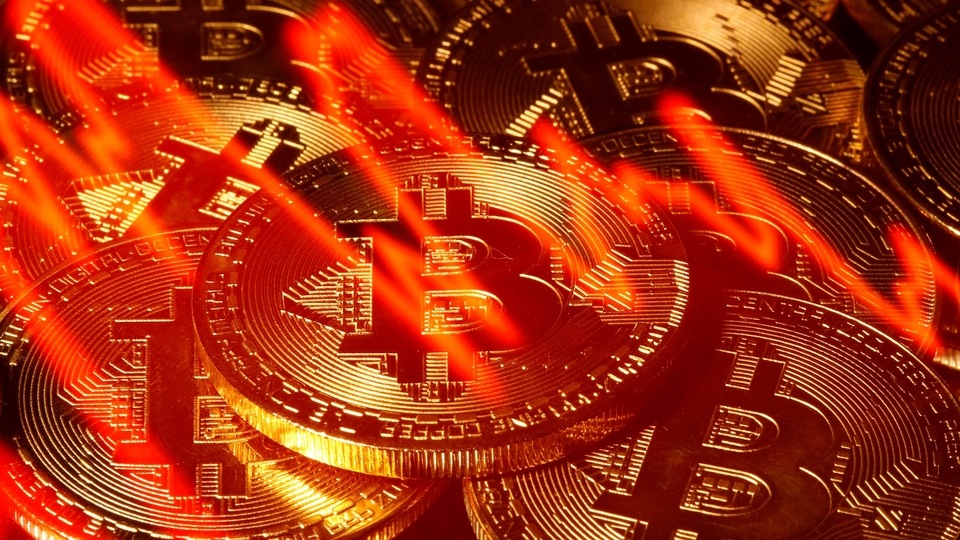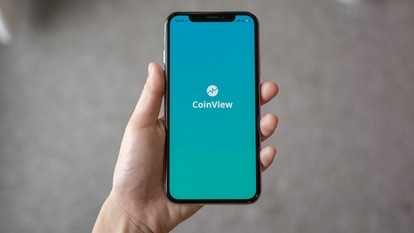Many traders and people buying bitcoins from India, says Function X’s David Ben Kay
Bitcoin registered its highest valuation this year. Does the surge in valuation make an impact in India?

India has so far separated the development of blockchain technology from cryptocurrencies. Even as blockchain adoption in various industries has grown in the country, cryptocurrency has remained in the background. Interestingly, 2020 has been one of the biggest years for cryptocurrency as the flagship bitcoin crossed $21,000 for the first time.
The situation is rather interesting for crypto-blockchain players who will obviously be looking at India for their next round of growth. We spoke to David Ben Kay, President at Function X, a nonprofit, independent organization that supports the growth of the Function X ecosystem, a next-generation internet service framework, built entirely on and for the blockchain. David touched upon a wide range of issues relating to cryptocurrency, blockchain, and of course the India potential. Here are the edited excerpts:
India is one of the world's largest economies. In the last couple of years what we have seen is that there is an in-principle go-ahead for blockchain as a technology but not a lot of clarity on cryptocurrency. In that situation, India remains a huge untapped market. What do you think will be the future of blockchain in India?
We all understand where the lag is, concerning technology and the regulators. One of the fundamental precepts of cryptocurrency and blockchain is decentralization. There is no single party or entity that is in control; it's decentralized. So, when you are dealing with organizations whose power rests in centralization, whether it is a government or a central bank, they are often going to be threatened by the idea that whatever they have been controlling might get out of their hands. That can be challenging for them to accept. It takes time. And likewise for developers, it takes time for them to develop a high enough degree of trust in a particular technology or product, let's say blockchain, to direct their energies to developing for that new technology. Cryptocurrency has an added challenge: there is a reputation with regard to its use on the dark web and in money laundering and financing of terrorism. Those are legitimate issues. So, regulators need to address those issues to a level where they have adequate trust to promote the development of the technology.
Over time, we have seen a number of governments getting involved at least in digital currencies – if not actual cryptocurrencies. The pandemic in many ways has accelerated digital payments. It has also accelerated us to become a cashless society which is in the Government's best interest. Even in India, demonetization proves that the concept of paper currency is falling by the wayside. So, more use cases have come up because governments, in general, are convinced with the value of blockchain as a technology and the use of those things that run on top of that technology, such as cryptocurrency. Initially what we tried to do is separate the underlying technology – blockchain - from cryptocurrency and let government see the value of blockchain first, let them understand the benefits. Examples of those benefits include medical record keeping, tracking land ownership and so forth. So, there are many benefits of blockchain not connected to finance. But now we are at a point where the Government itself is trying to figure out financing – for example, addressing issues of the “unbanked” in a different way. This interest on the Government's side has been especially accelerated by the pandemic. They will gradually appreciate the role that blockchain can play in this area.
Are you part of Facebook's Libra Association?
No. we are not.
Wouldn't it have made sense for your company to be part of it?
In my personal opinion, you will see greater use of anti-monopoly laws in the US and in Europe in particular to combat big tech companies taking advantage of their huge market share. The problem that I have with Facebook getting into this is that it is too big, not unlike Amazon. What these companies do is take the information of their users that they garner from one aspect of their business and apply that to get customers in their other businesses. Imagine if every Facebook user became a user of Facebook Finance. Monopoly operations do not align with the blockchain because they are antithetical to decentralization. What Facebook has been promoting is not decentralized cryptocurrency but centralized digital currency. So, you can appreciate that apart from member of the blockchain industry, central banks and governments might also have many issues with Facebooks entry into the finance industry.
India is one of the biggest smartphone markets, so do you think we will see some sort of mobile solution for blockchain or cryptocurrencies in the future?
What we are seeing at a ground level is that there are many Indian traders and people in India buying bitcoin, They are part of what we are seeing globally. If you see any statistics, it's evident that India is a huge market. The second thing is Indian companies such as TATA are entering the blockchain space similar to other global companies. It is really a paradigm shift, almost at the same level of the internet 15 years ago. We are seeing big companies trying to get into this space by separating crypto from its underlying technology.
So as one of the largest mobile phone markets in the world, I think it's inevitable that big companies interested in the intersection of blockchain and mobility will be looking at the potential in India. Recently, we saw PayPal's entry into the crypto market, and it got a lot of people interested in participating. Some say that the recent increase in value of bitcoin is partly because of PayPal. So, we think there's a similar trend happening in India with companies like TATA entering this space.
If you just had to make a guess, when will cryptocurrencies' use become equivalent to fiat currencies?
I think 2025 will be the year when there will be a successful mass distribution of vaccines for the pandemic and likewise in 2025 you will see the economies return to any kind of normalcy. But it will be a new normal and I think over that period of time we are going to see an acceleration of many things in the economy. So, we have these great distributors in the US and they go into communities that are hard hit by the pandemic and they realised that there is really keen interest in crypto in those areas. I think that is an indication of a more widespread movement. These are not people who deal in stock markets but everyday folk. You will see it become a grassroots movement. 2025 seems like a pretty short and reasonable timeline when you will look back at 2020 and think very few people were using cryptocurrencies back then, and now, in 2025, you will see its use become universal. I think we are seeing that day come.
From an India perspective, can you share how blockchain as a space is growing and do you see its adoption happening at a larger scale?
We are seeing its adoption in a lot of countries. China is going wholeheartedly into the technological aspects of it because it is also a fundamental building block of powerful AI. If you are looking in terms of intelligent networks or the Internet of Things – if you have a blockchain as a component of that, it will have better functionality. AI depends on huge amounts of data located in the Cloud. With the addition of blockchain technology, that data can be more efficiently and more securely managed. In terms of cost, blockchain will follow the same pattern as other technologies. When there is greater adoption the cost of implementing it and running it will go down. So, in terms of the bandwidth that will be needed it will become much more accessible to the average person.
Catch all the Latest Tech News, Mobile News, Laptop News, Gaming news, Wearables News , How To News, also keep up with us on Whatsapp channel,Twitter, Facebook, Google News, and Instagram. For our latest videos, subscribe to our YouTube channel.

























